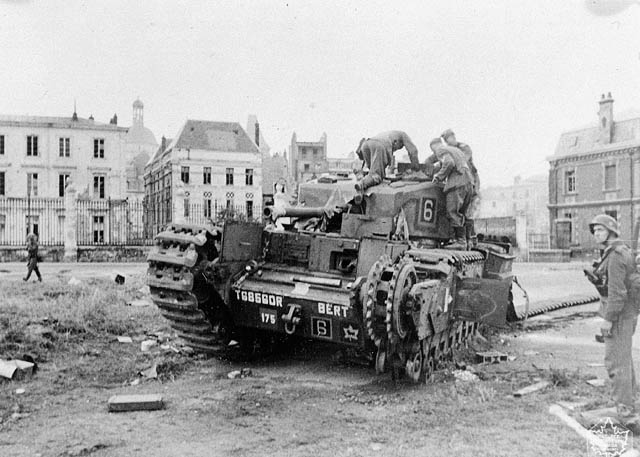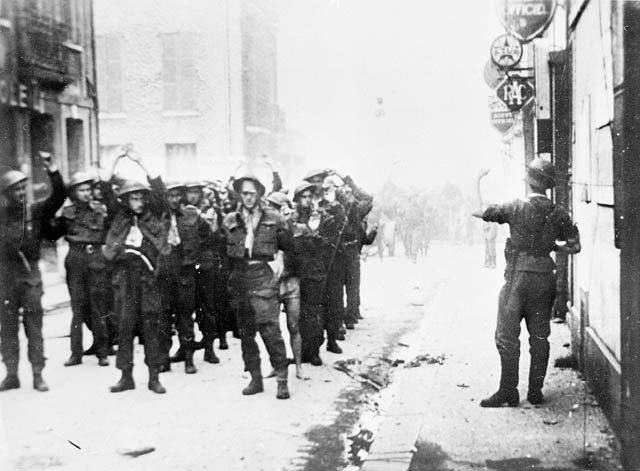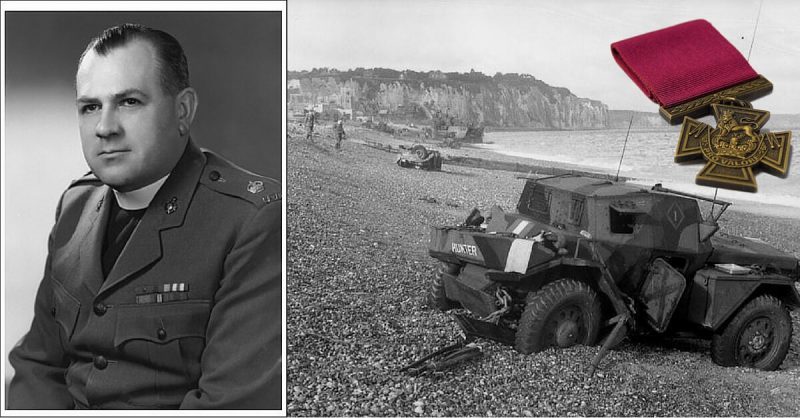It is hard to imagine a soldier retreating from a position of certain safety for the explicit purpose of getting captured, but that is exactly what Honorary Captain John Weir Foote of the Canadian Chaplain Services did during the doomed raid at Dieppe, France in 1942. Clearly, this was a man who took his vocation to serve the faith and the faithful seriously.
After spending the past eight hours braving heavy enemy fire on the beach to administer medicine and care to the wounded and dying, this brave man decided that he had to give even more help to his fellow soldiers. As a chaplain, he didn’t go there looking for a fight; he went to serve the spiritual needs of the men in his care. He lived up to the highest traditions of the Canadian military, the Chaplain Services, and any Allied soldier who ever fought in Europe.
A Call to Serve
John Foote was born on the 5th of May 1904 in Ontario, Canada. After high school, he went on to study at the University of Western Ontario in London and eventually Presbyterian College and McGill University in Montreal. At the age of 30, he entered the Presbyterian ministry and began serving congregations in Fort-Coulonge Quebec and Port Hope Ontario.
Just because this man had dedicated himself to a life of ministry didn’t mean he would ignore the call to war. When the United Kingdom declared war on Germany, many of his countrymen volunteered to go into harm’s way and Foote also followed the call to war.
In December of 1939, Foote volunteered for the Canadian Army at the age of 35 and would serve as the Regimental Chaplain with the Royal Hamilton Light Infantry. After a brief training period, he went on to provide chaplain services to the men.
He would have the opportunity to be one of the first men to set foot on the beaches of France in the effort to take back Europe. Unfortunately for Foote, this particular battle was the failed raid at Dieppe in August of 1942, which resulted in him being taken a prisoner. He wouldn’t leave again until the end of the war.

The raid on Dieppe was designed as more of a trial to see if it was possible to capture and hold a major port in France for a period of time. The raid also aimed to destroy coastal defenses, gather intelligence and establishing a Western Front, to divert troops from the Soviet Union. The Raiders were never meant to stay, but they were not expecting what awaited them.
The raid which comprised 5,000 Canadians, 1,000 British and 50 predecessors to the US Army Rangers was considered a total failure. The landing began at 5:00 AM and before 11:00 AM a full retreat was ordered. Nearly 60% of the Allied force was killed, wounded, or captured.
Caring for the Wounded
After landing on the beach, Foote who held the rank of Captain joined the Regimental Aid Post which had been set up on the beach to treat the wounded. With only enough cover in a depression to protect the men laying down, the medical personnel tending to the men were often the target of regular fire. However, over the next 8 hours, Captain Foote regularly left the poor cover of the aid station to minister to the wounded.
He would inject morphine, give immediate first aid, and carry the wounded back to the aid station despite a heavy volume of fire. Those who observed him remarked that he seemed almost oblivious to the bullets flying around him and displayed the calm demeanor, of one sure of his faith and who believed that God was shielding him.
When the tides changed on the beach, the aid station was forced to be moved to a stranded landing craft. Time and time again, Captain Foote would brave the heavy fire to carry one wounded man after another to the new location. Then, when the ammunition in the landing craft caught fire, he did it all over again braving the blazing inferno to take care of his men.
As it became clear it was time for the Allies to leave the beach and head for home, Foote refused several opportunities to embark. Rather, he continued to return to the beach in order to treat the wounded and evacuate them if possible. It was at this point Foote was given his final opportunity to return home when the last boat was set to leave the shore. Foote refused and intentionally chose to suffer whatever the men left on the beach would endure in order to fulfill his duties as a minister.
A Long Captivity
Foote could not know what would happen to him as the last ship left. He could not have known that there would be no Allied invasion of France for another two years. His fate was in the hands of the Germans.

For the next three years, John Foote would endure German captivity alongside the men whom he could have left behind. When he was finally released on 5th May, his birthday, in 1945 he would become the only member of the Canadian Chaplain Services to be awarded the Victoria Cross.
He remained in the service until 1948 after which he would pursue a political career along with his service in the ministry. He passed away in May of 1988 with the respect and gratitude of an entire nation, but most importantly of the men he refused to leave behind on the beaches of France.
Citation
At Dieppe, on 19th August, 1942, Honorary Captain Foote, Canadian Chaplain Services, was Regimental Chaplain with the Royal Hamilton Light Infantry.
Upon landing on the beach under heavy fire he attached himself to the Regimental Aid Post which had been set up in a slight depression on the beach, but which was only sufficient to give cover to men lying down. During the subsequent period of approximately eight hours, while the action continued, this officer not only assisted the Regimental Medical Officer in ministering to the wounded in the Regimental Aid Post, but time and again left this shelter to inject morphine, give first-aid and carry wounded personnel from the open beach to the Regimental Aid Post. On these occasions, with utter disregard for his personal safety, Honorary Captain Foote exposed himself to an inferno of fire and saved many lives by his gallant efforts. During the action, as the tide went out, the Regimental Aid Post was moved to the shelter of a stranded landing craft. Honorary Captain Foote continued tirelessly and courageously to carry wounded men from the exposed beach to the cover of the landing craft. He also removed wounded from inside the landing craft when ammunition had been set on fire by enemy shells. When landing craft appeared he carried wounded from the Regimental Aid Post to the landing craft through very heavy fire.
On several occasions, this officer had the opportunity to embark but returned to the beach as his chief concern was the care and evacuation of the wounded. He refused a final opportunity to leave the shore, choosing to suffer the fate of the men he had ministered to for over three years.
Honorary Captain Foote personally saved many lives by his efforts and his example inspired all around him. Those who observed him state that the calmness of this heroic officer, as he walked about, collecting the wounded on the fire-swept beach will never be forgotten.
